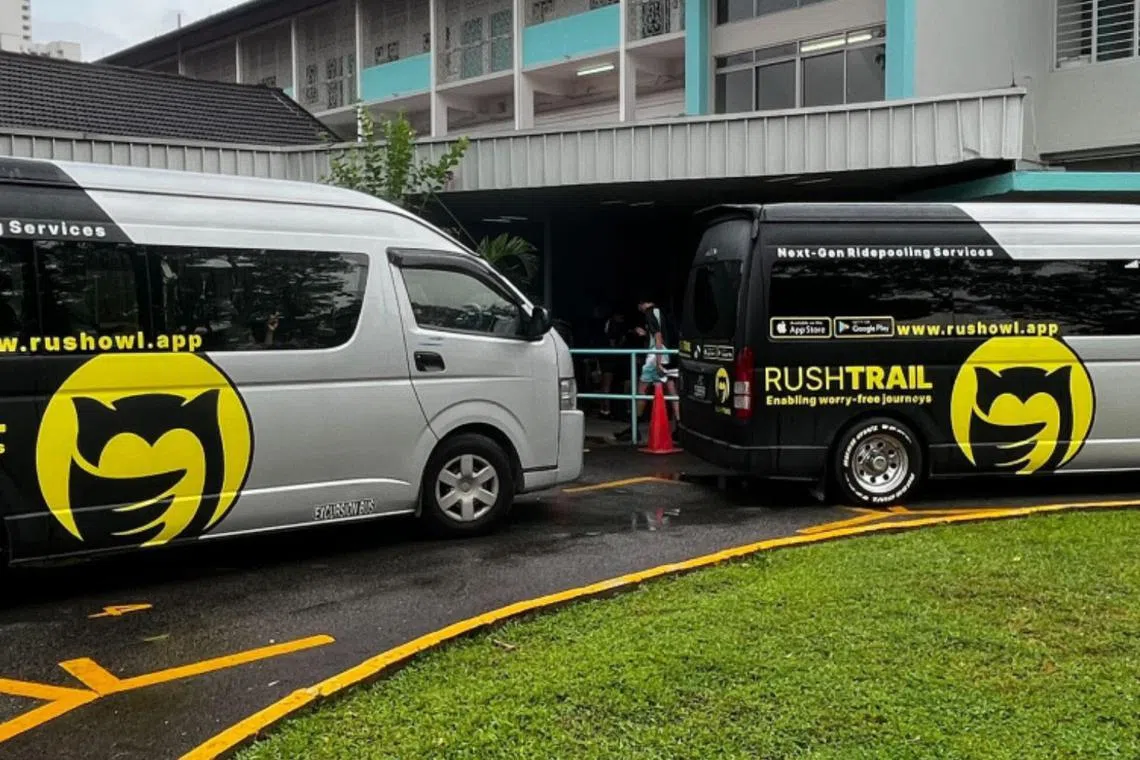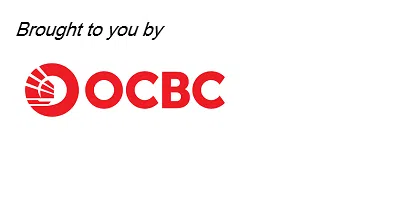On-demand facials, doorstep shuttle services: How two S’pore companies broke through by challenging norms
By meeting customers where they are and simplifying their daily routines, Kskin and RushOwl have turned accessibility into business success
Natalya Molok
IN THE beauty and skincare industry, advance bookings, hour-long sessions and the pressure to purchase packages have long been accepted as industry norms.
Because of these barriers of time, cost and pressure, many potential consumers are priced out. What if there was an alternative business model which makes professional skin care more accessible?
This was the challenge that inspired Brian Ng to co-found Kskin, a business specialising in on-demand express facial treatments where customers can pay $28 for a 15-minute session.
“Our customers prioritise efficiency and value,” says Ng, who operates Kskin as a subsidiary under the KC Group, an established local brand in the haircare and beauty industry. Other brands under the KC Group, which Ng heads with two other co-founders, include kcuts and Apgujeong Hair Studio.
Kskin was set up in 2020 to cater to customers who lead busy lives but still value professional care for their skin. Its outlets, numbering 65 in Singapore, do not take appointments. Instead, customers take a queue number after selecting their desired treatment.
From its first outlet in Clementi Mall, the brand’s convenient, no-pressure approach has resonated strongly with consumers. The company now serves over 100,000 customers monthly across more than 80 outlets in Singapore, Malaysia and the Philippines.
Navigate Asia in
a new global order
Get the insights delivered to your inbox.
It is also looking to expand further, with sights set on big markets like Indonesia and America. “We’re in talks with partners in different markets to grow the Kskin presence through physical locations and localised marketing campaigns,” says Ng. The company has an ambitious goal to serve 10 million customers.
The brand’s no-frills approach has attracted an unexpected demographic – male customers, who make up 20 per cent of its clientele, far exceeding the industry average of 3 to 5 per cent.
“Men like that it’s fast and hassle-free. After they try it, they share it with their male friends,” notes Ng.
Kskin’s success stems from its innovative approach to both customer experience and operations. By keeping its outlets small but strategically located in outlets that have small rental footprints in high-traffic areas, the company maintains strong revenue-to-cost ratios that have enabled rapid expansion.
As recognition for its innovative approach and responsive business model, Kskin is one of the recipients of this year’s Emerging Enterprise Award.

Bridging public and private transportation
While Kskin is transforming beauty services, another Singapore company is tackling a different pain point that affects many people – finding it difficult to get to work on time. RushOwl bridges the gap between private hire ride-hailing and public transport by operating bus shuttle services that adjust their routes dynamically based on real-time demand.
The company has found its niche serving business clients such as Amazon and Asia Pacific Breweries, ensuring their employees enjoy a hassle-free commute to work. This is especially important for companies with remote worksites that require workers for time-sensitive operations, such as warehousing and manufacturing.
Users of RushOwl’s internally developed app, RushTrail, indicate their travel needs, while the company’s artificial intelligence (AI) software generates the most optimal routes for bus drivers. The system now coordinates a fleet of 500 vehicles, handling 4,000 trips a day with guaranteed timely transport.
The transport company also operates a school bus service. Thanks to its AI software, it can organise its buses such that students whose schools are in the same neighbourhood are picked up together. The aggregation of destinations and optimised routing results in more efficient and timely transport, with fewer buses and drivers needed to make the trips.
Chief executive officer Shin Ng, says that RushOwl’s business model was initially software-as-a-service (SaaS). But it was “super hard” to convince bus transport operators to run their fleets on demand.
He recalls: “Many of the drivers are near retiring age, and usually not tech-savvy. In the early days, we would go down to the industrial park at 6am to teach the drivers how to use our app.”
Thankfully, technology and smartphone adoption has accelerated since RushOwl’s incorporation in 2018. While RushOwl continues to work with bus operators in Singapore, it is also running its own bus fleet.

The company has since expanded beyond Singapore, adapting its model for markets like India.
“In India, access to public transportation is a luxury,” says Ng. Working with land developers like Capitaland and JTC, RushOwl connects industrial parks to metro stations, focusing on rural connectivity.
RushOwl’s smart routing system does not just benefit commuters – it is also making strides for the environment. The company is able to reduce “dead mileage” – the wasted transport potential of empty seats – by about 30 per cent compared with private hire vehicles.
The reduction in dead mileage has positive environmental effects, from reducing carbon and air pollution to reducing road congestion.
This commitment to sustainability has earned RushOwl the Emerging Enterprise Sustainability Award. The company is now investing in electric vehicles, with plans for half of its Singapore fleet and all Indian operations to be electric by 2025.
As RushOwl grows its global operations, it is also collecting mobility data to shape future transport solutions. The company plans to use these insights to develop an effective electric vehicle deployment plan, which is something that many traditional fleet operators currently lack.
“Finally people recognise that, from an operational aspect, we can do more to decarbonise our current transportation system,” says Ng.
Recognising bold ambition
Now in its 17th year, the Emerging Enterprise Awards continue to highlight the innovation, resilience and excellence of small and medium-sized enterprises (SMEs) under 10 years old. The awards are a joint initiative by The Business Times and OCBC.
For the second consecutive year, applications were extended to emerging businesses across the region, broadening the awards’ reach beyond Singapore.
In the sustainability category, the Emerging Enterprise Sustainability Awards honour enterprises that embrace opportunities in the green economy – whether by embedding sustainable practices in their operations or leveraging technology and innovation to drive the transition to low-carbon economies.
Additionally, the Most Promising Sustainability Startup Awards celebrate businesses with unique, commercially viable ideas and significant long-term potential. Find out more here.

Share with us your feedback on BT's products and services
